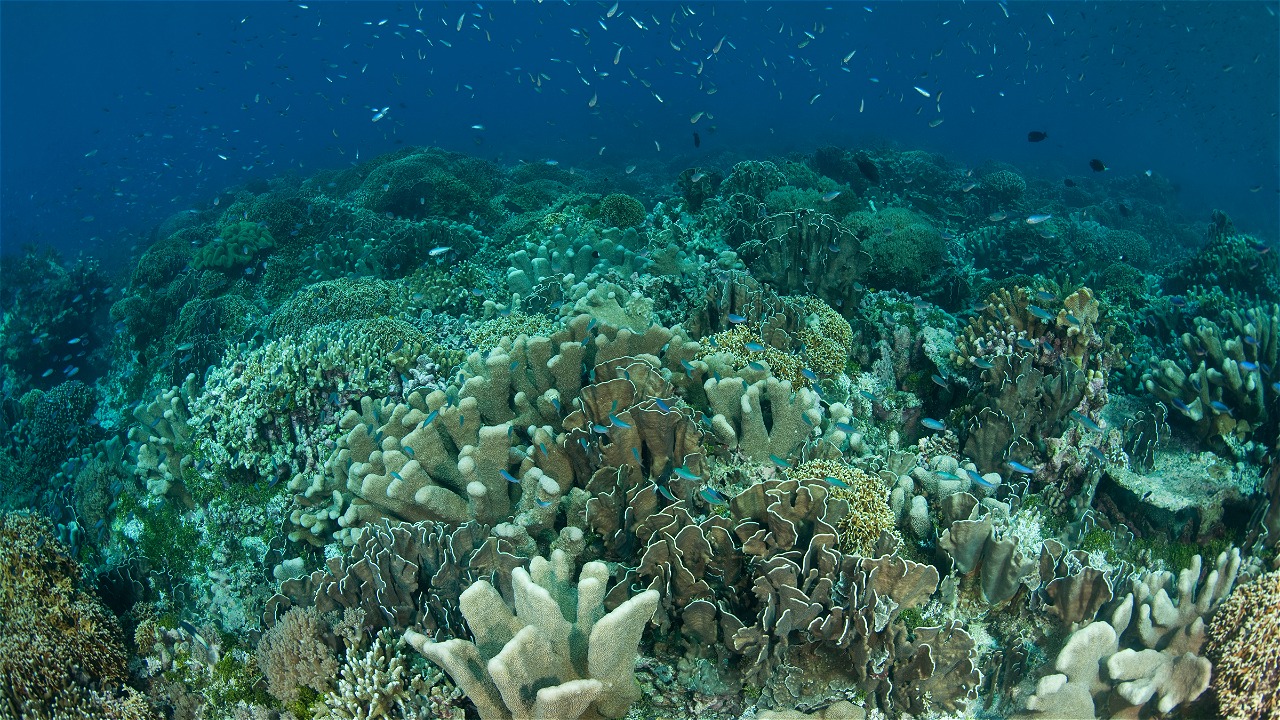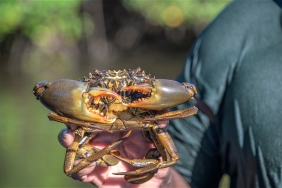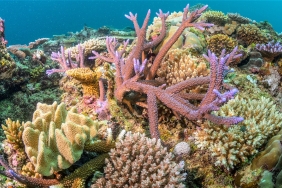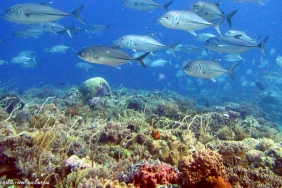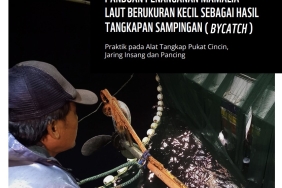BALI YOUTH COMMUNITY RECOGNIZES ECO-FRIENDLY MARINE TOURISM GUIDE (BEEP)
By: I Wayan Agung Panca Putra (Secretary of Signing Blue) & Nisa Syahidah (Sunda Banda Seascape Communication & Campaign Assistant)
"Who wants to volunteer to be a manta ray?" asked Ayu, Marine Ecotourism Improvement Program Officer, WWF-Indonesia, during a best practice simulation of observing and interacting with marine animals.
That day (08/09/2017), WWF-Indonesia's Sunda Banda Seascape office in Denpasar was enlivened by colleagues from various tourism activist communities in Bali. WWF-Indonesia introduced the Eco-friendly Marine Tourism Guide - or what is called the Best Environmental Equitable Practices (BEEP).
One of the participants came forward and practiced the manta ray swimming like flying by flapping its wings. The other participants observed in a semi-circular formation, providing an empty lane for the manta ray to swim freely. The observation was carried out from the closest maximum distance of 3 meters so as not to disturb the manta rays, in accordance with the BEEP Observing and Interacting with Marine Animals Series released by WWF-Indonesia.
"Tourism can be two different coins, having a positive impact to improve the economy, but also a negative impact due to the number of visits and damage to the surrounding ecosystem due to irresponsible tourism activities," said Indarwati Aminuddin, National Coordinator for Responsible Marine Tourism.
In Bali, which is synonymous with marine tourism, last July, there was damage to coral reefs in the waters of Nusa Lembongan, Nusa Penida District, allegedly due to uncontrolled tourism activities. In Lovina, Singaraja, dolphins were chased by overcrowded tour boats. There are still many tourists who are not satisfied if they have not been very close to - even touched, this marine mammal.
To reduce these negative impacts, as a public awareness effort, WWF-Indonesia continuously socializes BEEP, a guide to being a responsible tourist.
WWF-Indonesia has released 7 BEEP series, namely Responsible Maritime Activities Series; Ecological Footprint Series, Social Interaction and Compliance with Laws and Regulations Series, Series on Interacting with Marine Animals; Series on Responsible Recreational Vessel Operations, Series on Guidance for Developing Eco-Tourist Accommodations; and Series on Practical Guidance on Floating Tether Installation.
There are 3 BEEP series introduced in depth at this event Responsible Maritime Activities Series, Ecological Footprint Series, and Observing and Interacting with Marine Animals Series.
The Bali International Tourism College Nature Conservation Student Community (MPA-STPBI); Marine Buddies Denpasar; Bring Your Tumblr; Earth Hour Denpasar; Sobat Bumi; Basic Club; Indonesian Tourism Student Association (HMPI); even the Nusa Dua Reef Foundation (NDRF) and several media crews also filled the WWF-SBS office that day.
The introduction of BEEP is aimed at getting more communities to practice and spread good and correct procedures when traveling or interacting with marine animals These communities can become pioneers in protecting marine ecosystems.
"In an effort to reduce the ecological footprint, tour operators and tourists can participate in the best practices of waste and waste management, energy utilization, water management, and good consumption patterns while in tourist destinations," Ayu said. The discussion was lively as the community participated in discussing efforts to reduce the ecological footprint of tourism activities.
"Earth Hour also invites friends to make reusable bags from used clothes that can be used when shopping, to reduce plastic waste," said Andri, Coordinator of Earth Hour Denpasar.
At this event, WWF-Indonesia also invited community members to become Friends of Marine Parks by reporting what they see when traveling in marine conservation areas, through the Marine Buddies application.
This effort certainly does not end here. The values in the seven BEEP series will continue to be spread by WWF-Indonesia, from mouth to mouth, from forum to forum, in order to realize a more friendly face of tourism. For the marine animals and ecosystems that we all protect.

